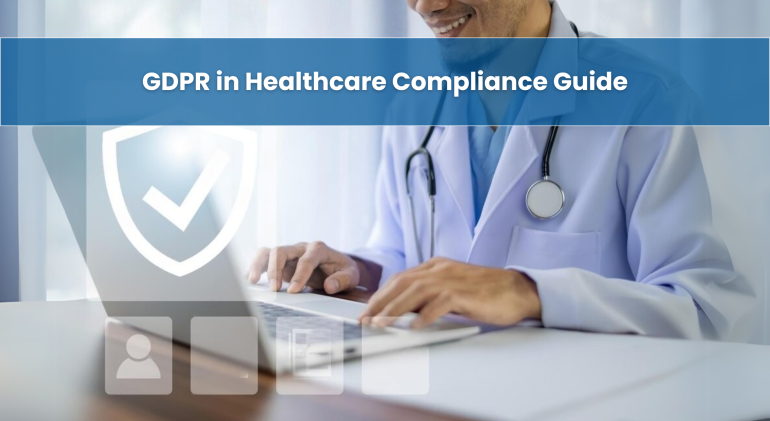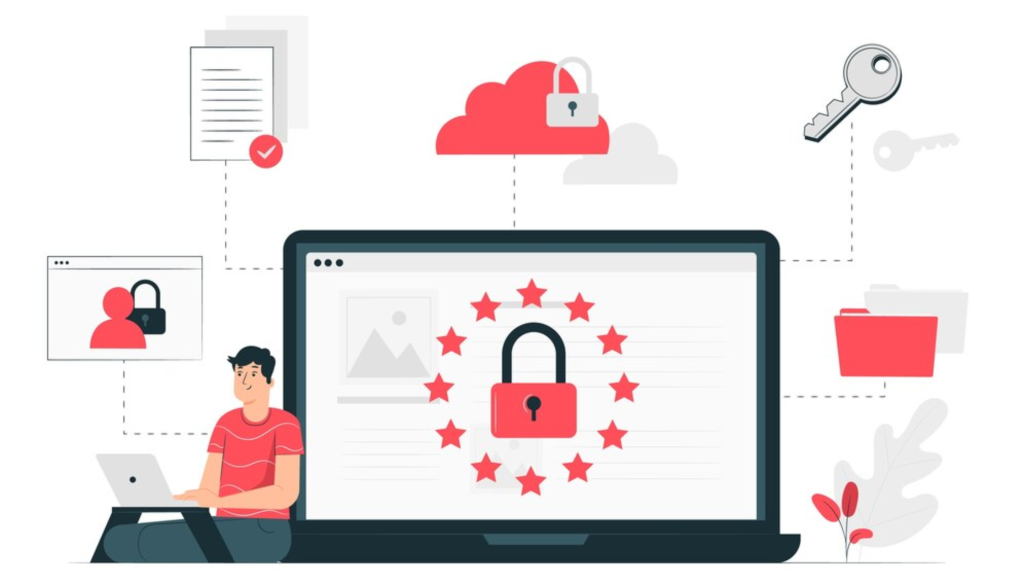
GDPR in Healthcare Compliance Guide
Creating and maintaining healthcare records is crucial in treating a patient in the UK. It is to record patient health history on a centralized system to enable swift treatment plans across the country. Such information is sensitive and it is the responsibility of the healthcare provider to protect it.
The government has set up a General Data Protection Regulation (GDPR) law that outlays the guidelines to collect and process sensitive personal data from individuals. Healthcare service providers have to comply with GDPR guidelines to protect patient data from breaches. GDPR service providers in UK are of immense assistance to healthcare providers as they take care of crucial tasks while physicians focus on patient care.
Steps to ensure GDPR compliance in healthcare
All healthcare service providers and organisations that deal with handling patient data of UK citizens are required to comply with GDPR, regardless of their geographic location. It is not only to ensure that sensitive patient information is safe from cybercrime but also to avoid repercussions.
1. Program development
Allot a dedicated team to develop, implement, and monitor the program. The program involves creating frameworks and work processes at every level to comply with the policies and procedures. The team must be up to date with the new releases and abide by GDPR healthcare.
2. GAP Analysis
Conduct GAP analysis of the work processes regularly to identify the gaps and implement solutions for the results.
3. Set a timeline
As a GDPR service provider in UK, one must work on dedicated timelines to structure, monitor, and implement. Failure to fix issues and gaps can lead to irreparable consequences.

4. Awareness of GDPR compliance at the management level
Any changes, gaps, and rules to protect patient data must be reviewed and supported by the management. This is to ensure the smooth running of the systems while implementing best practices.
5. Awareness of GDPR compliance at the employee level
Creating awareness is the first step to implementing the best practices for patient privacy protection in healthcare. Circulate printed material and conduct workshops/trainings to educate and update your employees. This is for employees at all levels and in all the departments. It helps individuals understand their responsibility for GDPR compliance in healthcare sector.
In addition to following the above steps, one must implement the below to protect data.
– Securing devices
Limit the access of data to only the personnel who require it to perform their duties at work. Implement single sign-on and two-factor authentication on all devices in your organisation.
– Creating awareness of patient rights
Use the standardized image symbols that represent GDPR in all your documents. Keep it uniform across all the platforms so the patients, their caregivers, and others can easily understand the purpose of collecting and storing data.
Also, inform the patients through physical or electronic paperwork.

– Safety standards for the supply chain
The supply chain must meet ISO 27001 standards for the safekeeping of data. All cybersecurity measures must also be in place across the network of devices accessed by the staff in the work environment. It has to be controlled and monitored by a GDPR Service provider in UK.
– Assessing data protection
Data protection impact assessment (DPIA) is to identify and reduce the risks in the process of data protection. It is mandatory to carry out DPIA before making any changes since data processing is sensitive.
Implementing all these measures is mandatory as it touches upon all the areas through which data will pass. Securing all touchpoints is crucial to keeping data secure. Failure to do so leads to data leaks which has serious consequences.
Repercussions of non-compliance with the GDPR

Failure to comply with the regulations and new update releases of GDPR has its consequences. Data breaches attract a fine of Euro 17 million or 4% of company revenue, whichever is greater. Fine is imposed by the government to make sure the entities implement all the given measures to keep the sensitive information safe.
Patients also have a right to file a claim for data breach from the healthcare service provider. Organisations and agencies can lose out large sums of money in such claims.
Apart from monetary loss, healthcare centres are also at a risk of losing their existing patients and new patients as the word spreads about the data breach at their concern. Loss of reputation can cause a centre to close down. It is expensive, time-consuming, and complicated to maintain a team in-house to handle this. GDPR service providers provide a platform for data protection.
Such platforms have all the GDPR policies and procedures incorporated at every step. Patient records can be entered and managed on the platform. Repetitive tasks can be automated to save time and manual labour.






